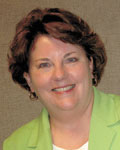December 5, 2011
Questions Parents Need to Ask When Selecting a Program for Their Child
 By Rondi Doyle
By Rondi Doyle
Director of Community Relations
Child Abuse Council
Let’s say you are lucky enough to have options as you prepare to enroll your child or grandchild in daycare, school or community-based program. How do you choose the right daycare, school or program for your child/grandchild? Many parents/grandparents rely on the program’s reputation, or recommendations from other parents, but ideally, you should speak with the administrators at several schools, daycares, and programs.
Here are some suggested questions, designed to illuminate the administration’s attitudes and practices. (Adapted from Stop It Now.)
To be sure your child is safe, make sure any program you are considering has a more comprehensive approach to
preventing sexual and other forms of child abuse. The Centers for Disease Control and Prevention has defined key components of a comprehensive approach to keeping kids safe. These include screening and selecting employees and volunteers; guidelines on interactions between individuals; and monitoring behavior.
How does the program screen staff? The organization or program should be knowledgeable about who sexually abuses children, and what puts children at risk to be abused. Ask how they screen employees and volunteers, and be wary if they rely solely on criminal background checks. People who have sexually abused children will pass a criminal background check unless the abuse has been reported, prosecuted as a sexual crime, and the person has been found guilty. The program should use written applications and personal interviews to learn about what previous experience someone has working with youth, and to identify any potential warning signs.
Do they check references? Reference checks provide important opportunities to learn more about an applicant’s experience.
What is their policy or code of conduct about interactions between employees/volunteers and youth? All the policies in the world won’t do any good unless they are observing interactions and taking action as needed. Organizations who take seriously the safety of children understand the importance of both observation and taking action. What procedures does the organization have for monitoring interactions? What is the procedure for bringing up concerns about interactions between adults or older youth and children? Who is designated to handle these concerns?
Have they considered safety in the physical environment? Safety in the physical layout can be too often overlooked. Are all areas of the space visible to others or could someone bring a child into a corner or closet without being seen by others? Do doors have windows or are they kept open so anyone walking by can see how staff are interacting with children? When you visit the space, think about how easy or difficult it will be for staff to monitor interactions. Would it be easy for someone from outside the program to gain access? Can anyone walk in or do you need to sign in?
How do they handle situations like inappropriate behavior or allegations of sexual abuses? You want to be certain that they have policies and procedures in place to deal with not only evidence of sexual abuse, but breaches in policies and concerning behaviors. Some situations require an internal response while others should be handled by authorities.
What training staff and volunteers receive about preventing child sexual abuse? Training is another way that organizations send a message to staff and volunteers that they are serious about keeping children safe from abuse.
The Child Abuse Council exists to lead community efforts to eliminating child abuse and neglect by strengthening children and families through prevention, education and treatment. For more information about the Child Abuse Council, you can visit at www.childabuseqc.org.
Filed Under: Community, Family, Health & Wellness
Tags: Attitudes, Centers For Disease Control, Centers For Disease Control And Prevention, Child Abuse Council, Children At Risk, Code Of Conduct, Community Relations, Criminal Background Check, Criminal Background Checks, Daycares, Disease Control And Prevention, Forms Of Child Abuse, Grandparents, Personal Interviews, Questions Parents, Reference Checks, Reputation, Sexual Crime, Volunteers, Warning Signs
Trackback URL: https://www.50pluslife.com/2011/12/05/questions-parents-need-to-ask-when-selecting-a-program-for-their-child/trackback/


